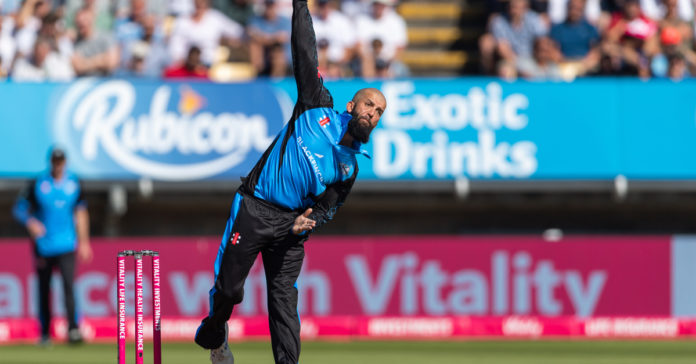In order to address the underrepresentation of South Asian players in English cricket, the South Asian Cricket Academy (SACA) has been launched to provide an opportunity to at least 20 players to gain professional contracts.
The ambassadors of SACA include British Muslim players Moeen Ali, Adil Rashid and Saqib Mahmood, as well as Kabir Ali, the former England bowler who is one of the coaches and directors of SACA.
Currently around 30 percent of recreational cricket players in England and Wales are classified as “British Asian”, however, the percentage falls to five percent when it comes to men’s professional cricket.
The project aims to correct the disparity which has been highlighted in research by Tom Brown, a Ph.D. student at Birmingham City University (BCU).
According to the BCU, “SACA aims to increase the percentage of British Asian players within the professional game to eight percent by the end of 2024 and 15 percent by the end of 2027.”
Similarly, the scheme also focuses on increasing coaches and promoting research in the area. It aims to see ten percent of coaches in professional cricket coming from the Asian community by the end of 2027.
According to The Cricketer: “The players will be provided individual training programmes, dietary advice (SACA has engaged Dr. Lewis Gough, a nutritionist used by Olympic swimmers and cyclists) and coaching to enable the players to have a better chance of fulfilling their potential and gaining a contract at a first-class county.”
Subscribe to our newsletter and stay updated on the latest news and updates from around the Muslim world!
Mr Brown explains: “Although the programme will work predominantly with British South Asian cricketers, the ultimate goal is to challenge the current status quo and develop a new approach to talent identification and development, which is transferable to people of all ethnic and socio-economic backgrounds…
Brown’s research has found that 56 percent of Under 16 – Under 19 cricketers, and 45 percent of professional players, were White-British and attended independent schools. British South Asian players were shown to be much less likely to make it into professional cricket, despite the sport being very popular among these communities.
The researcher thinks that the program will be closed within the next six years because of the changes it will bring in cricket in England and Wales.
According to a report in The Cricketer: “BCU has agreed to fund the scheme to the tune of £120,000 over the next three years enabling it to launch in January. The first intake, which will include only players who have left the county pathway without a contract, will include 16 boys and four girls aged from 18 to their mid-20s.”
Similarly, to address the issues faced by Asian women in the game, former England cricketer, Isa Guha has promised to fund research in the field. Guha is also a patron of SACA.
Azeem Rafiq YCCC racism scandal
The scheme has been launched amid racism allegations by multiple players of South Asian descent which were propelled by Azeem Rafiq’s testimony about the racism he faced at Yorkshire County Cricket Club. Several other players from different ethnic backgrounds and clubs have also recounted the harrowing racial abuse they faced at their respective clubs.
In order to promote inclusiveness and diversity in cricket, the England and Wales Cricket Board (ECB) last week unveiled a 12-point action plan called “The Equality, Diversity, and Inclusion (EDI) Action Plan”.
EDI was jointly developed by ECB, Marylebone Cricket Club (MCC), Professional Cricketers’ Association (PCA), and counties. It aims to look at dressing room culture and create welcoming environments for all, besides other matters of importance.
Tom Harrison, ECB Chief Executive Officer said: “I am delighted that this plan represents the whole game coming together to commit to tangible action and meaningful change. Our role as the ECB will now be to acknowledge the changes that need to be made internally, as well as offer support, resource, and funding to assist the game in making these changes.”


















